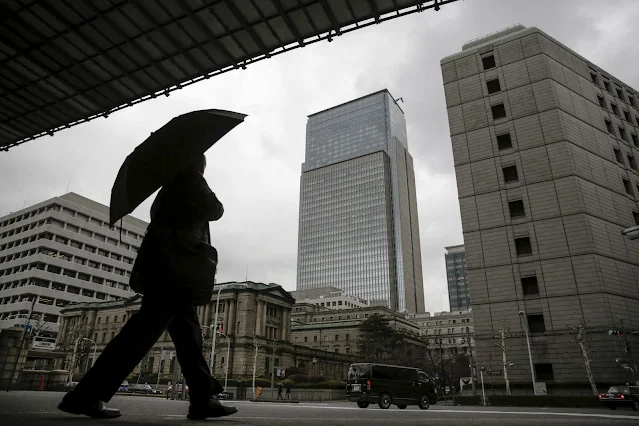Image: Reuters Berita 24 English - As more companies move away from a business model that functioned during a prolonged period of deflation,...
 |
| Image: Reuters |
Berita 24 English - As more companies move away from a business model that functioned during a prolonged period of deflation, inflationary pressures in Japan may rise, according to Bank of Japan board member Seiji Adachi.
However, he cautioned that tightening monetary policy now would be "premature," given that inflation remains below the central bank's 2% target and the economy has yet to fully recover from the COVID-19 outbreak.
"Shifting to tighter monetary policy now would inflict significant damage to industry and household activities with the impact of the pandemic persisting," Adachi warned in a speech.
After a briefing, Adachi said the BOJ would consider normalizing monetary policy if consumer inflation, which excludes one-time items like fuel and fresh food expenses, approaches 2%.
He told reporters that such inflation, which indicates the economy's resilience, "may reach near 2% if corporations continue to pass on increased costs to consumers," adding that Japan's pricing forecast included both upside and downside risks.
After an asset-inflated bubble burst in the late 1990s, Japan was engulfed in two decades of deflation, as enterprises were forced to cut prices to attract customers. As a result, salary growth has been modest, leaving households with less spending power.
More corporations are hiking rates now as global commodity prices rise, indicating a change away from the low-profit business model that succeeded during deflationary years, he added.
"There's a fair probability that Japan's inflationary pressure will rise in the near future," said Adachi, who has routinely voted with the board's majority to keep policy ultra-loose.
Adachi also stated that the BOJ will not boost interest rates in order to reduce the rate of yen depreciation.
He continued, "We must not forget that a high yen was one of the causes that contributed to Japan's lengthy deflation and two 'lost' decades" of economic stagnation.
In April, core consumer inflation, which excludes the impact of volatile fresh food prices, hit 2.1 percent, exceeding the BOJ's target for the first time in seven years, owing mostly to rising fuel prices.
However, a separate index that excludes both fresh food and fuel costs was 0.8 percent in April, indicating that inflationary pressure has not yet spread to other parts of the economy.






No comments